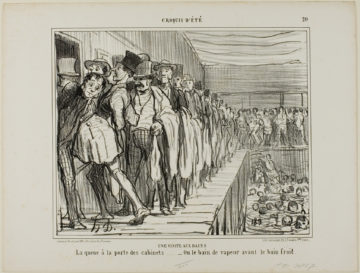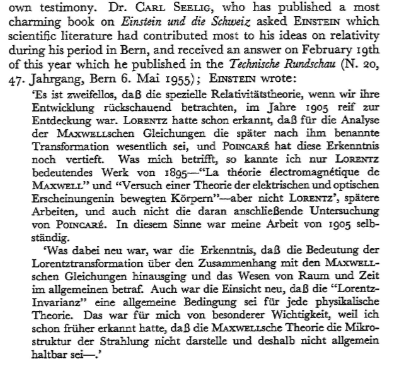by Joseph Shieber

It is ironic that one of the primary obstacles to meritocracy in science, the oversupply of talent, is simultaneously a key contributor to the myth that merit reigns in science.
To explain, I’ll proceed in three steps. First, I’ll devote most of my efforts to provide reason for thinking that there IS an oversupply of talent in science. Second, I’ll briefly explain why the oversupply of talent is problematic for meritocratic conceptions of science. Third, I’ll suggest a reason why such oversupplies of talent paradoxically fuel the myth of meritocracy.
Is there a surplus of talent in science? In 2019 alone, there were roughly 23,000 Ph.D.s awarded in the natural sciences, computer science, and mathematics – and an additional 10,000 or so Ph.D.s awarded in engineering. This vastly dwarfs the number of research positions – particularly academic research positions – available.
Indeed, as a 2021 article in Areo magazine notes, “between 1982 and 2011 in the US, around 800,000 science and engineering PhDs were awarded, but only about 100,000 new tenure-track faculty positions were created in those fields.”
Nor is the problem limited to the United States. The Areo article cites a 2016 OECD report as noting that:
A recent survey of 38 EU and EU-partner countries shows a persisting duality, with a significant proportion of researchers in the higher education sector employed on fixed-term contracts, or no contracts at all, the situation being most pronounced during early career stages. In 2012, the proportion of researchers with “no contract at all” or on a less-than-one-year contract was ten times higher among PhD students and young graduates (31%) than at the latest research career stages (3%). Almost 90% of PhD researchers were in precarious working conditions with no or less-than-two-year contractual horizons, while 90% of leading senior researchers were on permanent positions. This duality has created problems for the individuals involved, who have little long-term job security and increasingly face few opportunities to obtain permanent or tenured positions.
Nor is the problem of oversupply new to science. The frequent examples of prominent priority disputes in science attest to the fact that talent surpluses have been a persistent phenomenon in the history of science.
Some of the most groundbreaking discoveries in science occurred independently to different researchers at almost the same time. Both Newton and Leibniz developed calculus. In the 1850s, Darwin was spurred to publish his theory of evolution by natural selection because he became aware of the fact that Alfred Russel Wallace had independently discovered the principle of natural selection.
Notably, Patrick Matthew, a Scottish farmer and grain merchant, published a version of the idea of evolution by natural selection in 1831 – some five years before Darwin even set sail on the HMS Beagle. In later editions of The Origin of Species, Darwin acknowledged that Matthew had “anticipated” him, writing that Matthew “clearly saw … the full force of the principle of natural selection.”
Even Einstein’s discovery of special relativity, though marvelous, was perhaps not as miraculous as scientific mythmaking often makes it appear. In a 1955 letter to Dr. Carl Seelig, reprinted in Max Born’s 1956 book Physics in My Generation, Einstein grants that “There is no doubt, that the special theory of relativity, if we regard its development in retrospect, was ripe for discovery in 1905. Lorentz had already recognized that the transformations named after him are essential for the analysis of Maxwell’s equations, and Poincaré deepened this insight still further.”

Indeed, credit in science frequently accrues to someone other than the person who discovered a particular scientific phenomenon. This happens so frequently, in fact, that this phenomenon itself has a name – Stigler’s Law of Eponymy. (As I’ve noted previously, Stigler playfully noted that Stigler’s Law of Eponymy is an example of itself – since the phenomenon it describes had previously been observed by the sociologist of science Robert Merton.)
These examples in support of the fact of the oversupply of talent in science already go a long way to answering the second question: Why is a surplus of talent in tension with the idea of meritocracy in science? An oversupply of talent guarantees that there will be a mismatch between an individual’s level of talent and that person’s level of success. Even assuming that the system of rewards in science is efficient enough that only those with talent achieve success – and this is quite a strong assumption! – a talent surplus will nevertheless result in many of those with talent NOT achieving success.
The obvious tension between talent surpluses and meritocracy makes it particularly paradoxical that talent surpluses seem to enhance the psychology of meritocracy. In order to see this, it is important to distinguish between descriptive and normative notions of meritocracy. The normative notion of meritocracy takes merit as an important regulative ideal or goal. For example, when I’m trying to choose the best plumber to fix my sink, I should take salient features like price, quality, and speed into account, but not features like sex or race or ethnicity.
The descriptive notion of meritocracy, on the other hand, sees meritocracy as actually describing the system currently in place. If you believe that the system in which you’ve succeeded is already a meritocracy, then talent surpluses only reinforce that belief. That is because seeing the talent of those who’ve failed only boosts your own sense of self-worth, further reinforcing your identification with the system that has led to your success.
A 2011 paper by Son Hing and colleagues highlights this point. In that paper, “The Merit of Meritocracy,” the researchers note that
a critical distinction lies in whether one endorses meritocracy as a descriptive belief or a prescriptive belief (see also Major, Kaiser, O’Brien, & McCoy, 2007). Among those who believe meritocracy reflects current outcome distributions in society—that is, those for whom meritocracy is a descriptive belief—meritocracy can function as a hierarchy-legitimizing ideology. However, among those who believe that outcomes in society ought to be distributed on the basis of merit—that is, those for whom meritocracy is a prescriptive belief—meritocracy can function as a justice principle.
This distinction points to a way out of the myth. If you can hold on to the notion of merit purely as a regulative ideal without falling into the trap of seeing the current institutions of science as already realizing a meritocracy, then the hope is that you can pursue the aims of justice without reinforcing existing — unjust — hierarchies.
How, though, can you resist the myth of scientific meritocracy? As the review of the current situation and the historical record suggests, to do that you just need to open your eyes.
